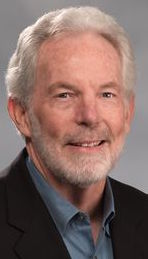By JULIA SHUMWAY/Oregon Capital Chronicle
SALEM — The start of Oregon’s short legislative session this week brought all 90 lawmakers back to Salem, but some will have a larger impact on the state’s laws and political conversations than others.
Here’s a look at key players – from both parties and both chambers – to watch as the Legislature continues its work over the next month
Rep. Dan Rayfield, D-Corvallis
Rayfield is in his third and final session as speaker, and he plans to step down from the role at the end of the session to focus on his campaign for attorney general. As speaker, he focused on building a culture of mutual trust and “no surprises” in the House, helping stave off some of the inter-party conflict that roiled the Senate. In his final year, and heading into a statewide election, Rayfield will want to point to legislative victories, especially in addressing the state’s addiction crisis.
Rep. Julie Fahey, D-Eugene
Fahey is Rayfield’s heir apparent in the House after winning a private vote among Democrats in January. She’s been the House majority leader since 2022 and saw the caucus through a tough election that cost Democrats two House seats. (They still have a 35-25 majority and hope to pick up more seats in 2024.) Like Gov. Tina Kotek, Fahey is a policy wonk with a special interest in housing: She led the House’s housing committee before taking over as majority leader.
Rep. Jeff Helfrich, R-Hood River
Helfrich, the House minority leader, overcame a challenge from the right flank of his party to take over as head of a fractured Republican caucus last fall. The affable retired police officer has been able to work well with Democrats in the past, most notably as former vice-chair of the House Housing and Homelessness Committee. Helfrich himself remains focused on housing and addiction, but he’ll have to corral a 25-person Republican caucus with members who are easily distracted by culture war issues, including which bathrooms transgender people should be allowed to use. Helfrich is one of a few House Republicans running for reelection in a swing district, and he’ll have to defend his own seat while trying to grow Republican ranks in the House.
Sen. Dick Anderson, R-Lincoln City

Anderson’s one of only three Republican senators eligible to run for re-election because he stayed on the Senate floor through the majority of a six-week walkout staged by other Republicans last year. He faces a potentially tough election in one of the state’s few swing districts. And as vice chair of the Senate Housing and Development Committee, he’s the leading Republican working on solutions to the state’s affordable housing crisis. Anderson spearheaded a proposal for revolving loans to spur construction of homes for middle-income Oregonians who make too much to qualify for subsidized housing but not enough to afford to buy in the current market. It’s a key component of a larger housing package the Legislature will take up this year.
Sen. Tim Knopp, R-Bend
Knopp, the Senate minority leader, led his caucus through the longest walkout in state history last year. He gave up his legislative career for it, as did nine other Senate Republicans. Now, the Bend Republican says he has nothing to lose and nothing to stop him from, in his words, “pausing the session” with another walkout if he feels Democrats aren’t respecting Republicans and their constituents. For now, Knopp has said he believes this session will be more bipartisan than the last.
Sen. Elizabeth Steiner, D-Portland
Steiner, starting her sixth term as co-chair of the powerful budget-writing Joint Ways and Means Committee, may know more about the state’s finances than anyone else in the Capitol. Along with House co-chair Tawna Sanchez, D-Portland, Steiner holds the power to determine which of the many funding requests from lawmakers, Kotek, state agencies and other groups will move forward this year. Steiner’s already setting expectations, warning lawmakers and the public earlier this week that there won’t be enough money for everything they want to accomplish – though she won’t know just how much until after Wednesday’s revenue forecast. She’s also running for state treasurer, and, like Rayfield, looking for ways to raise her statewide profile ahead of the election.
Sen. Kate Lieber, D-Beaverton
Lieber, the Senate majority leader, is a co-chair of the joint committee addressing addiction and community safety – the starting point for bills tweaking the state’s drug decriminalization law. Along with Rep. Jason Kropf, D-Bend, the former prosecutor will need to thread the needle between the criminal penalties their Republican colleagues and many Oregonians are clamoring for and the increased treatment resources advocates who have long been Democrats’ political allies say are needed. So far, the proposal Lieber and Kropf released has upset just about everybody, with Republicans saying it didn’t go far enough and advocacy groups slamming it as a return to the war on drugs.



